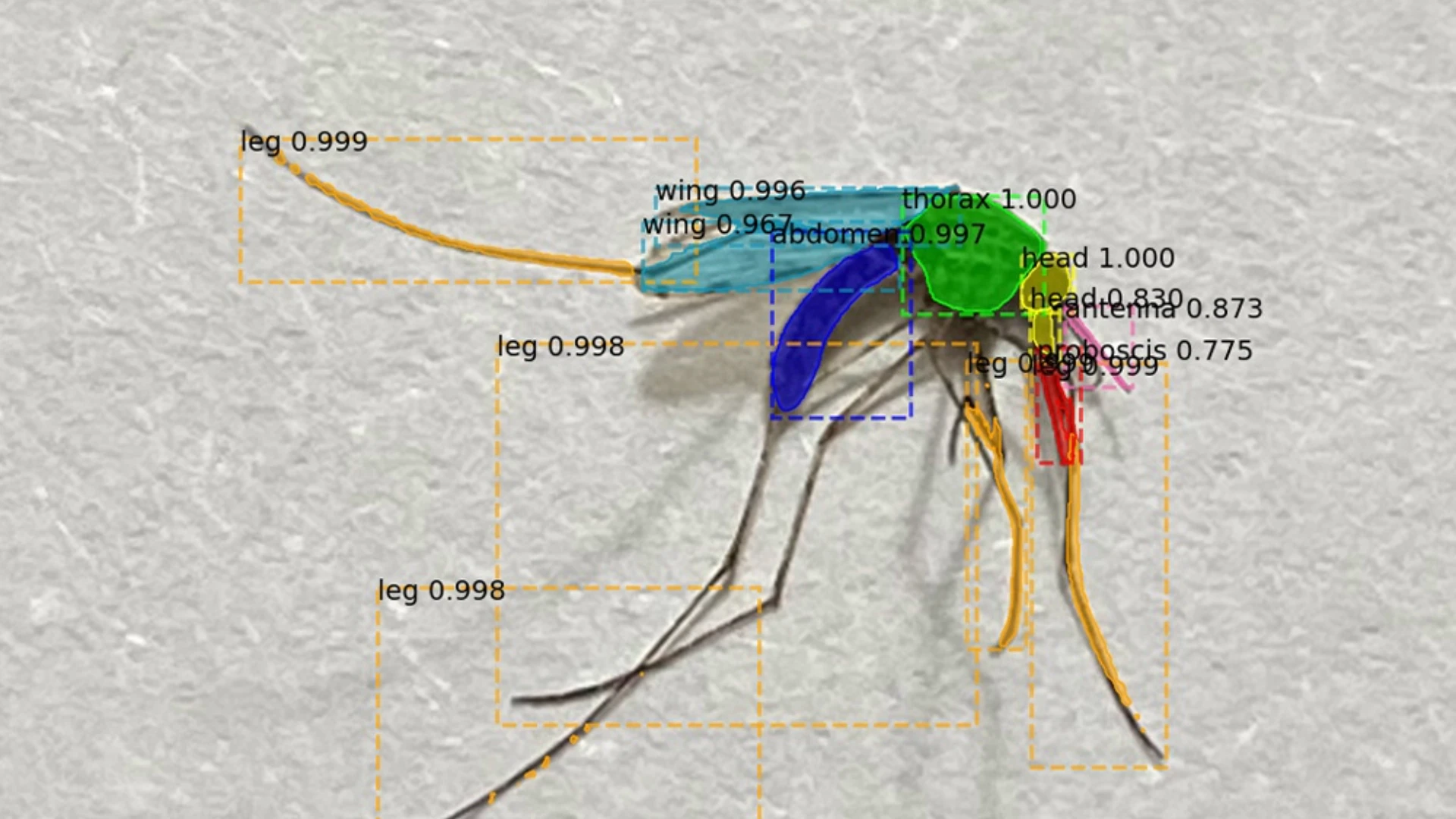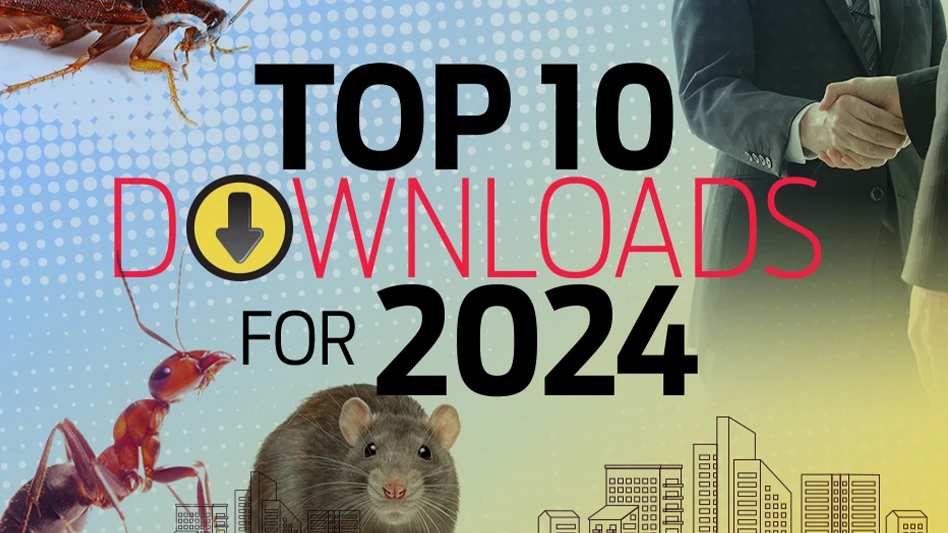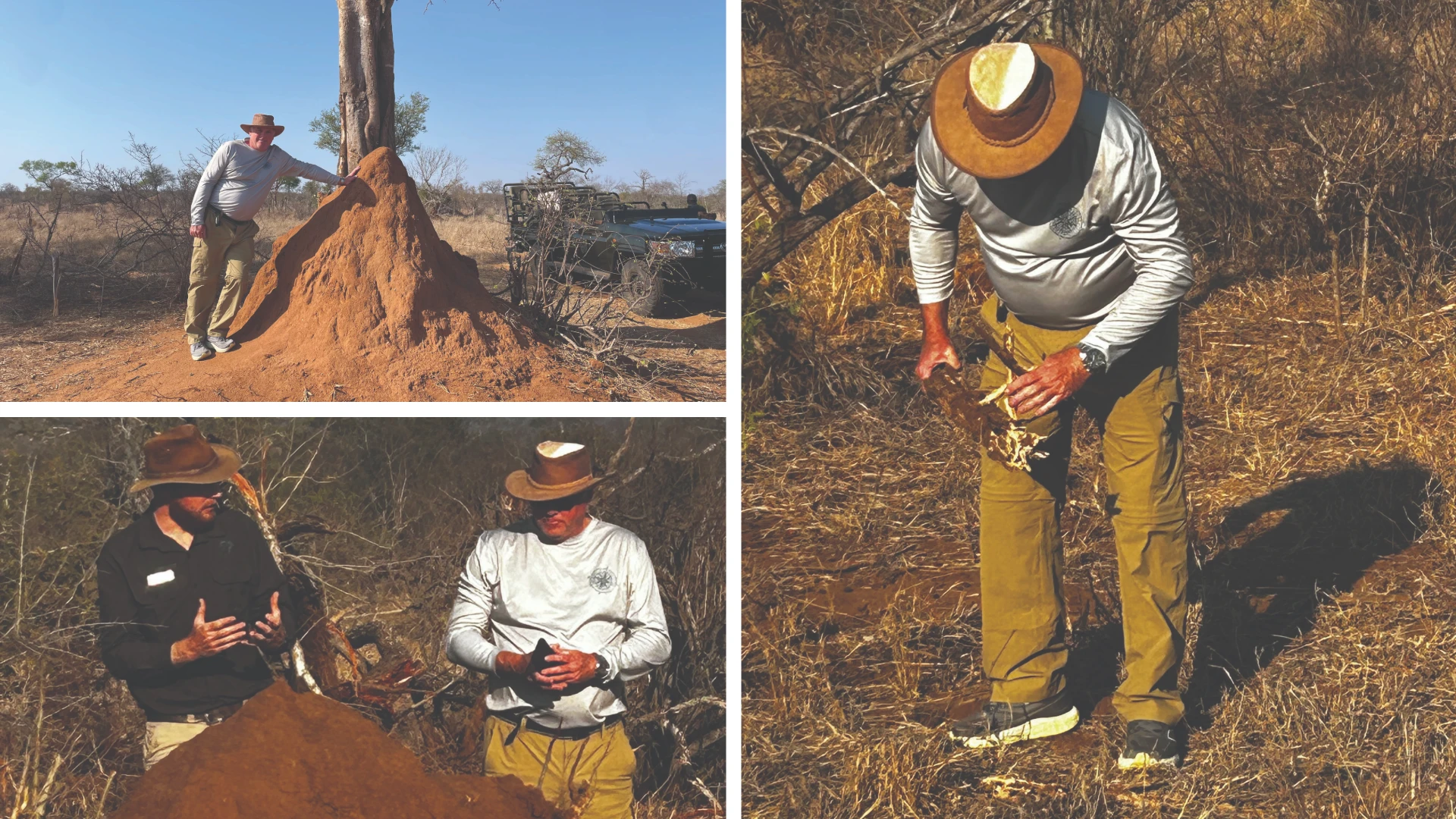
Courtesy of University of South Florida
Editor's note: This article was written by Cassidy Delamarter, University of South Florida Communications and Marketing. Last year, The New York Times Global Health Reporter Stephanie Nolen documented the reversal of progress made in battling malaria around the world. PCT caught up with her for a Q&A on why it’s happening and what can be done. Read the Q&A here.
University of South Florida researchers are using artificial intelligence to revolutionize mosquito surveillance to help combat malaria in Africa. Ryan Carney, associate professor of integrative biology, and Sriram Chellappan, professor in the department of computer science and engineering, will collaborate with an interdisciplinary team of researchers to advance malaria research and explore innovative solutions to target malaria-infected mosquitoes in real-time.
The project is part of an international effort funded by a $3.6 million grant from the National Institute of Allergy and Infectious Diseases, part of the National Institutes of Health. Known as EMERGENTS (Enhancing Malaria Epidemiology Research through Genomics and Translational Systems), the project will establish a new International Center for Excellence for Malaria Research in west-central Africa, with in-country expertise in Nigeria and Cameroon. According to the World Health Organization, in 2022, there were 249 million new cases of malaria globally and 608,000 resulted in death. Africa is disproportionately affected by the disease, accounting for 95% of the world’s 2022 malaria deaths.
Over the next five years, the international center will advance evidence-based strategies for malaria eradication and elimination, including training a new generation of African scientists, better understanding of insecticide resistance and investigating the geographic expansion of Anopheles stephensi, a dangerous urban malaria vector that has recently started to invade Africa.
The information gathered at the center will be used for global management of malaria. While the primary focus of the EMERGENTS initiative is Africa, the technology and methodologies developed through this project have significant implications for the United States. Florida, with its conducive climate and high rate of international travelers, remains a critical point for monitoring mosquito-borne illnesses.
Carney and Chellappan will lead the project’s image-driven mosquito surveillance efforts by training local scientists how to leverage citizen science through mosquitodashboard.org, a global mosquito-tracking dashboard they created in 2022 with funding from the National Science Foundation. The dashboard – accessible online – integrates hundreds of thousands of mosquito observations from various platforms into an interactive, real-time dashboard and data portal, using photos that people upload from their smartphones.
Using some of the same unique algorithms, Chellappan is testing an artificial intelligence-enabled smart trap that will lure, capture and monitor Anopheles stephensi. The goal is to deploy multiple prototypes of the patent-pending smart trap throughout west-central Africa during this project to specifically trap and automate the identification of Anopheles stephensi instantaneously.
The dashboard and smart trap are powerful tools that provide real-time data to researchers and mosquito-control personnel for the early detection of invasive and disease-carrying mosquitoes. The success of the dashboard and citizen science are documented in previous studies published by Carney and Chellappan.
In an existing campaign launched in 2022 in collaboration with the Centers for Disease Control and Prevention, this process has already been piloted through citizen science activities in countries, including Ethiopia and Madagascar. The additional funding from this new project will allow Carney and Chellappan to refine their algorithms and add additional species for automated identification, with the main target being Anopheles stephensi.
“Anopheles stephensi is a very efficient vector of malaria, and something that has adapted itself to the human environment,” Carney said. “Therefore, it can cause huge, unprecedented epidemics in urban centers, which we have already started to see unfolding in Africa. Florida is ground-zero for mosquito-borne diseases in the U.S. and although Anopheles stephensi has not yet been detected domestically, our citizen science infrastructure and species identification technologies ensure that we are prepared to fight this potential threat.”
As the technology advances throughout this project, Chellappan hopes the traps can be sold to citizens at an affordable price to further enhance community-led mosquito surveillance and control both abroad and locally.
Latest from Pest Control Technology
- Inside Out
- Virginia Pest Management Association Announces Award Honorees, Scholarship Recipients
- Kingfish Pest Control Named to University of Georgia Alumni Association’s Bulldog 100
- Aruza Pest Control Acquires Obex Pest Defense
- Veseris for Success
- Stucco Remediation, Mold and Termites
- 1st Choice Pest Solutions Participates in Local Food Drive
- Graduate Pest Solutions Gives Back to Rick's Place, Halfway Home Cat Rescue





